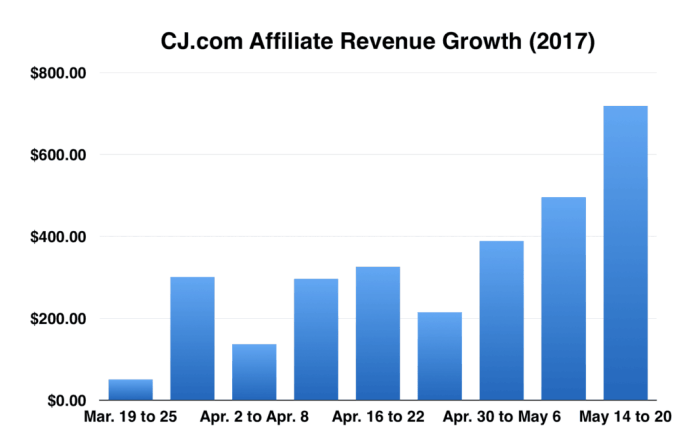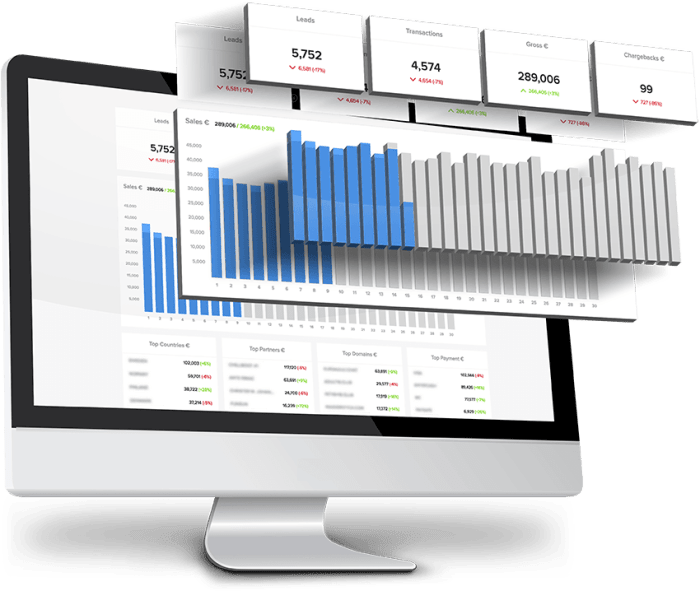
Affiliate revenue for bloggers opens a door to a world where content creation meets financial gain, allowing writers to turn their passion into profit. With the right strategies and knowledge, bloggers can tap into various affiliate programs that not only complement their niche but also enhance their income streams.
Whether you’re a seasoned blogger or just starting out, understanding how affiliate marketing works and the potential it holds can transform your blogging experience. By exploring different types of affiliate programs and implementing effective tactics, you can significantly increase your earnings while providing value to your audience.
Understanding Affiliate Revenue for Bloggers
Affiliate revenue provides a powerful opportunity for bloggers to monetize their content by promoting products and services in exchange for a commission. The concept revolves around recommending products that align with the blog’s niche, enabling bloggers to earn a percentage of sales generated through unique affiliate links. This model not only benefits bloggers but also allows companies to reach broader audiences through trusted voices.Affiliate programs vary widely, catering to different blogging styles and niches.
They can be divided into several types, each offering unique benefits for bloggers. Here are the primary types of affiliate programs available:
Types of Affiliate Programs for Bloggers
Understanding the different types of affiliate programs is crucial for bloggers looking to choose the right partnerships. Each program has its own structure and commission model, which can significantly affect earning potential. Here are the main types of affiliate programs:
- Pay-per-sale (PPS): Bloggers earn a commission when a referred customer makes a purchase. This is the most common affiliate model and is effective for product-focused blogs.
- Pay-per-click (PPC): In this model, bloggers receive payment based on the number of clicks generated through their affiliate links, regardless of whether a sale occurs. It suits blogs that attract high traffic.
- Pay-per-lead (PPL): Bloggers earn commission when a referred visitor takes a specific action, such as signing up for a newsletter or downloading a free resource. This model is common in service-oriented niches.
- Subscription programs: Bloggers can promote subscription-based services, earning recurring commissions for each month a customer remains subscribed. This model is ideal for bloggers focusing on software or online services.
Strategies to Maximize Affiliate Revenue
Implementing effective strategies can significantly enhance a blogger’s affiliate revenue. Here are essential strategies for optimizing earnings through affiliate marketing:
- Focus on Quality Content: Creating high-quality, engaging content that resonates with your audience builds trust and drives conversions. Authentic recommendations often lead to higher sales.
- Choose Relevant Products: Select products that align with your blog’s niche and audience interests. Promoting irrelevant items can harm credibility and reduce conversion rates.
- Utilize Multiple Channels: Leverage various platforms such as social media, newsletters, and podcasts to promote affiliate links, reaching a broader audience.
- Monitor Performance: Regularly analyze the performance of affiliate links to understand what works best. Adjust strategies based on data to maximize revenue potential.
- Engage with Your Audience: Building a community around your blog helps in driving traffic and conversions. Engage through comments, emails, and social interactions to foster relationships.
“Successful affiliate marketing relies on trust and authenticity; the more genuine the recommendation, the higher the conversion rate.”
Exploring Workers Compensation and Its Impact on Blogging

Understanding workers’ compensation is essential for bloggers working as freelancers, especially as the digital landscape continues to evolve. As independent contractors, bloggers may unknowingly expose themselves to risks that could impact their health, finances, and overall success in the blogging industry. By grasping the nuances of workers’ compensation, bloggers can better protect themselves and ensure their income remains stable, despite unforeseen circumstances.Workers’ compensation laws vary by jurisdiction, and their implications can significantly affect blogging income.
If a blogger is injured while performing work-related tasks, they may need to file a workers’ compensation claim. However, freelancers often fall outside traditional employment categories, which might complicate their eligibility for benefits. It’s crucial for bloggers to understand their classification as workers, as misinterpretation could lead to unforeseen liabilities. Additionally, bloggers may face financial challenges if they cannot work due to an injury, impacting their capacity to generate income through their blogs.
Understanding Worker Classification and Its Importance
Determining whether a blogger is classified as an employee or an independent contractor impacts their rights to workers’ compensation benefits. Knowing the distinction helps bloggers navigate the complexities of the law.
- Employees typically have access to workers’ compensation benefits through their employers. They are covered if they get injured while performing work-related tasks.
- Independent contractors, however, might not be entitled to these benefits unless they specifically acquire their own coverage. As a freelancer, bloggers should consider investing in personal insurance plans to safeguard against potential income loss.
Compliance with Workers’ Compensation Regulations
Ensuring compliance with workers’ compensation regulations can help bloggers avoid legal issues. Understanding local laws and requirements is vital for freelancers in the blogging sphere.
- Bloggers should familiarize themselves with their jurisdiction’s workers’ compensation laws, as they vary significantly.
- It may be prudent for bloggers to consult with a legal expert specializing in employment law to clarify their responsibilities and rights.
- Keeping accurate records of work-related tasks and any incidents can be beneficial when navigating claims or disputes related to workers’ compensation.
“Knowledge of workers’ compensation laws empowers bloggers to proactively manage risks associated with freelance work.”
Monetization Through Internet Auctions and Audio Streaming

Bloggers have a plethora of avenues to explore when it comes to monetizing their content, and two impactful methods are internet auctions and audio streaming. By leveraging these platforms, bloggers can not only enhance their income but also engage their audience in innovative ways. This section delves into how these strategies can be effectively utilized for revenue generation.
Leveraging Internet Auctions for Additional Income
Internet auctions provide a unique opportunity for bloggers to sell products directly to their audience. By creating auction-style listings for exclusive merchandise, digital products, or even experiences, bloggers can tap into their followers’ desire for unique items. For instance, a travel blogger could auction off a personalized travel itinerary, offering their expertise in a unique way. The excitement of bidding can lead to higher sales prices than traditional sales methods.
Here are some key benefits of using internet auctions:
- Engagement: Auctions can create a sense of urgency and excitement among followers, encouraging them to participate actively.
- Unique Offerings: Bloggers can sell one-of-a-kind items or experiences that can’t be found elsewhere, appealing to collectors or fans.
- Broader Reach: Online auction platforms often attract a diverse audience, potentially introducing bloggers to new followers and customers.
Successful Audio Streaming Content Enhancing Affiliate Revenue
Audio streaming has emerged as a powerful medium for bloggers looking to diversify their income streams. By creating engaging audio content such as podcasts, live streams, or audio blogs, bloggers can build a loyal listener base while promoting affiliate products seamlessly. For instance, a fitness blogger might produce a weekly podcast where they share workout tips while promoting relevant fitness products through affiliate links.
Successful examples include:
- Interviews with Experts: Featuring industry experts can elevate the perceived value of the content, encouraging listeners to trust and engage with recommended products.
- Exclusive Content: Offering premium audio content for subscribers can incentivize listeners to purchase products promoted during the streams.
- Live Q&A Sessions: Engaging with the audience live can strengthen relationships, making them more likely to trust and act on affiliate recommendations.
Content Quality and Affiliate Revenue in Audio Streaming
The quality of audio content is pivotal in determining the success of affiliate revenue. High-quality, well-produced audio can captivate listeners, retaining their attention and enhancing their trust in the blogger’s recommendations. To highlight the relationship between content quality and affiliate revenue, consider the following aspects:
- Production Value: Well-edited audio with clear sound quality and engaging delivery can significantly impact listener retention and trust.
- Relevant Content: Aligning affiliate products with relevant and valuable content ensures that listeners view recommendations as helpful rather than intrusive.
- Consistency: Regularly releasing quality audio content can foster a dedicated audience that is more likely to act on affiliate links shared.
“High-quality audio content not only engages listeners but also establishes credibility, leading to increased affiliate revenue opportunities.”
Conclusion
In conclusion, affiliate revenue for bloggers is not just about placing links; it’s about creating meaningful content that resonates with your readers while maximizing income potential. By leveraging the right affiliate partnerships and staying compliant with regulations, bloggers can carve out a lucrative niche in the ever-evolving digital landscape.
Commonly Asked Questions
What is affiliate marketing?
Affiliate marketing is a performance-based marketing strategy where bloggers earn a commission by promoting products or services and directing customers to affiliates’ websites.
How can I find the right affiliate programs?
Look for affiliate programs that align with your blog’s niche and audience interests, and consider factors like commission rates, product quality, and support provided by the affiliate.
Do I need a large audience to succeed in affiliate marketing?
No, while a larger audience can help, quality content and targeted marketing efforts can lead to successful affiliate sales even with a smaller audience.
How do I disclose affiliate links to my readers?
It’s important to be transparent; you can include a brief disclosure statement at the beginning or end of your posts indicating that you may earn a commission from affiliated links.
Can I use social media for affiliate marketing?
Absolutely! Social media platforms are great for sharing affiliate content and engaging with your audience, further enhancing your potential for earnings.





